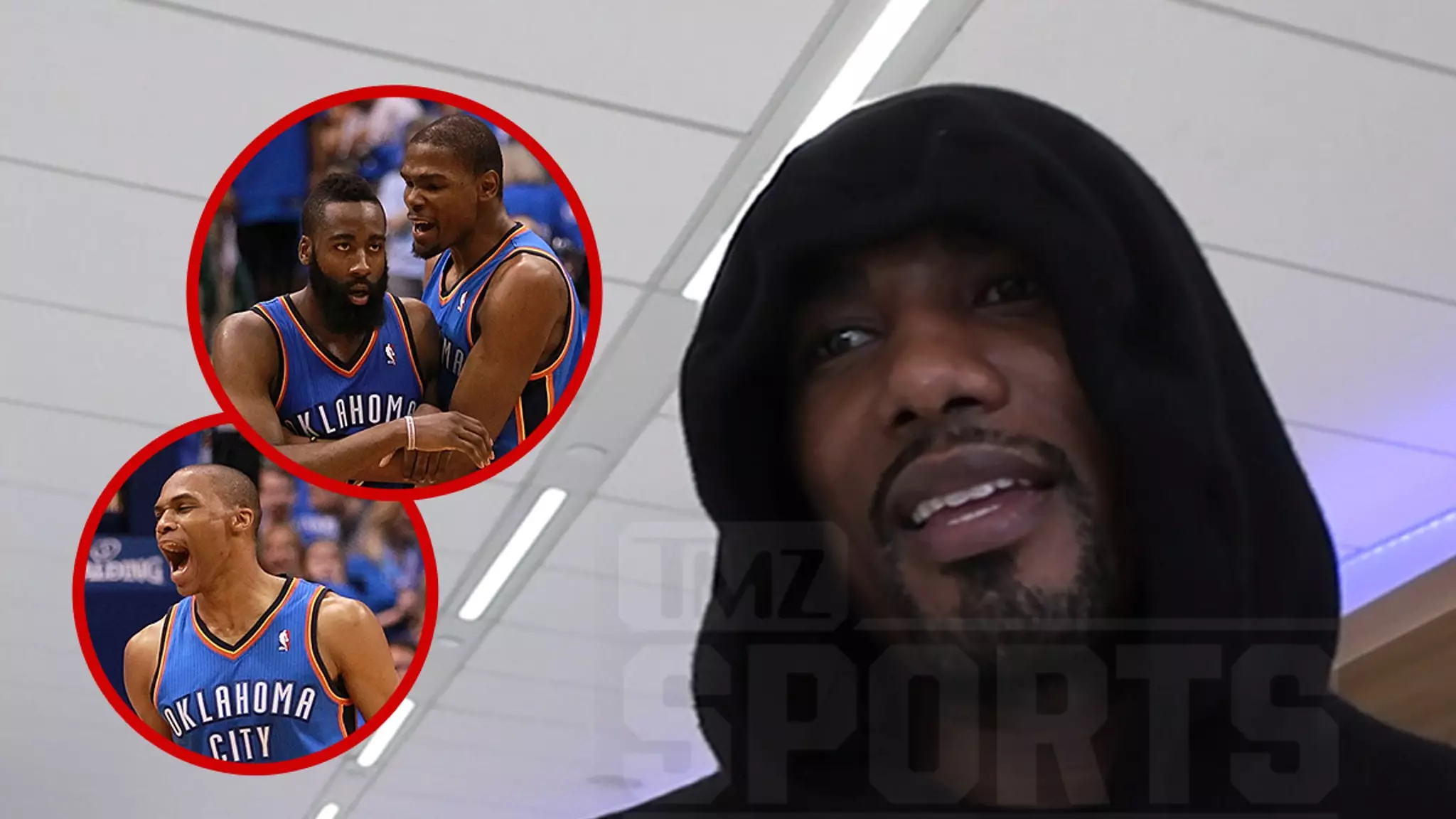The saga of the Oklahoma City Thunder’s “what if” moment revolves around their iconic 2010s roster—Kevin Durant, James Harden, Russell Westbrook, and Serge Ibaka. Had these stars remained united beyond 2012, the landscape of the NBA might look drastically different today. For many basketball aficionados, this trinity represented an almost unstoppable force, promising multiple championships and redefining the franchise’s legacy. However, internal conflicts, financial constraints, and management decisions led to their separation, leaving a trail of empty banners and unfulfilled potential.
Serge Ibaka’s recent commentary highlights a profound truth: that the Thunder had a genuine shot at multiple titles when their core was intact. His assertion that “minimum two” more championships were within reach underscores how close these players were to building an enduring dynasty. The loss of Harden, in particular, was a pivotal blow—he was the kind of player who could have been the final piece to an already formidable puzzle. The subsequent years saw Oklahoma City struggle to recapture that consistent winning form, illustrating just how delicate the balance of team chemistry and management plays in sustaining championship windows.
Missed Opportunities and the Fragility of Superteams
While some argue that assembling a superteam doesn’t guarantee success, the Thunder’s situation exemplifies how critical stability can be to maximizing talent. The combination of Durant’s scoring, Westbrook’s relentless energy, and Harden’s offensive prowess formed a perfect storm. The team’s inability to retain all three highlights broader issues within NBA management: the push and pull between player ambitions and front-office strategies.
Ibaka’s comments also reflect a broader truth about NBA superteams—they are inherently fragile. Superstars often chase rings, and unless a team can secure loyalty through shared vision and mutual trust, fragmentation becomes inevitable. Oklahoma City, with its young core and promising talent, still holds the potential to rise again, but the lesson remains: keeping the best players together requires more than just talent—it demands strategic patience and unwavering focus on long-term cohesion.
Future Prospects and the Power of Team Development
What truly stands out from Ibaka’s words is his unwavering optimism about the current direction of the Thunder. He believes that if their young core can stay intact, the team can chase championships once more. This perspective invites a compelling narrative: that future success depends not just on acquiring stars but on fostering a sustainable culture of teamwork and growth.
In an era where superteams tend to form and disband rapidly, Oklahoma City’s blueprint seems to be rooted in patience and development. Ibaka’s confidence in their potential to win “three” titles on paper emphasizes the importance of talent, but also the significance of stability. The Thunder’s future might hinge on whether they can nurture their promising roster and replicate the chemistry that once made them a playoff menace.
As the franchise looks ahead, Ibaka’s insights serve as a rallying cry: don’t underestimate the power of sustained growth and strategic retention. Oklahoma City’s window isn’t closed; it’s simply waiting for the right moment to swing open again.

